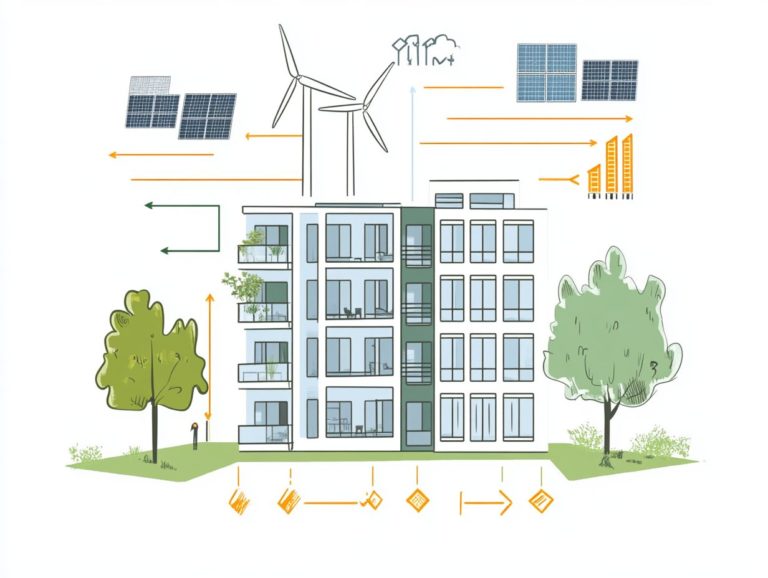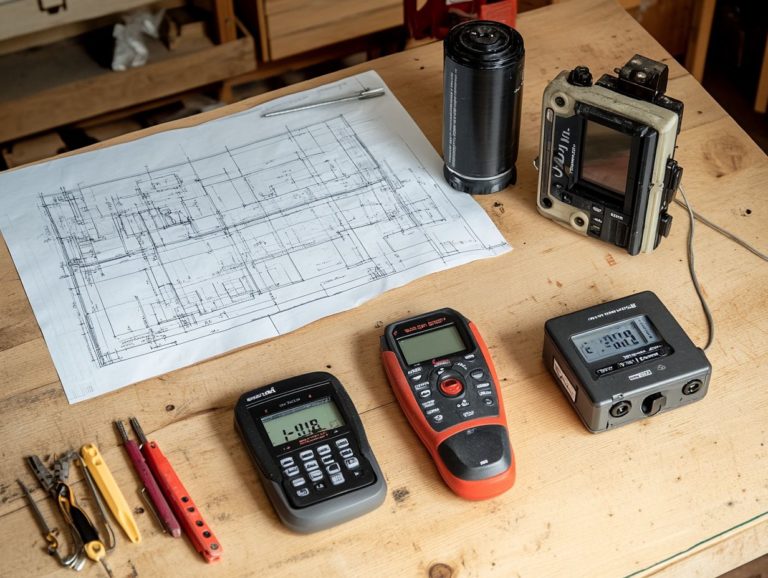The Link Between Energy Audits and Sustainability
Energy audits are vital tools for understanding and improving energy use in homes and businesses. By assessing your current energy usage, these audits highlight inefficiencies and identify cost-saving opportunities while also benefiting the environment.
This article explores the various types of energy audits, their importance in promoting sustainability, and offers practical steps to implement energy efficiency measures. With advancements in energy audit practices, there is even greater potential for sustainable solutions in the future.
Discover why energy audits are essential for paving the way to a greener tomorrow.
Contents
- Key Takeaways:
- The Importance of Energy Audits
- Unlock the Benefits of Energy Audits Today!
- Types of Energy Audits
- The Role of Energy Audits in Sustainability
- Implementing Energy Efficiency Measures
- Future of Energy Audits and Sustainability
- Frequently Asked Questions
- What is the connection between energy audits and sustainability?
- How does conducting an energy audit promote sustainability?
- Can energy audits benefit both businesses and individuals in terms of sustainability?
- What are some common outcomes of energy audits that promote sustainability?
- Are there any financial benefits for companies that conduct energy audits to promote sustainability?
- How often should energy audits be conducted to maintain sustainability?
Key Takeaways:
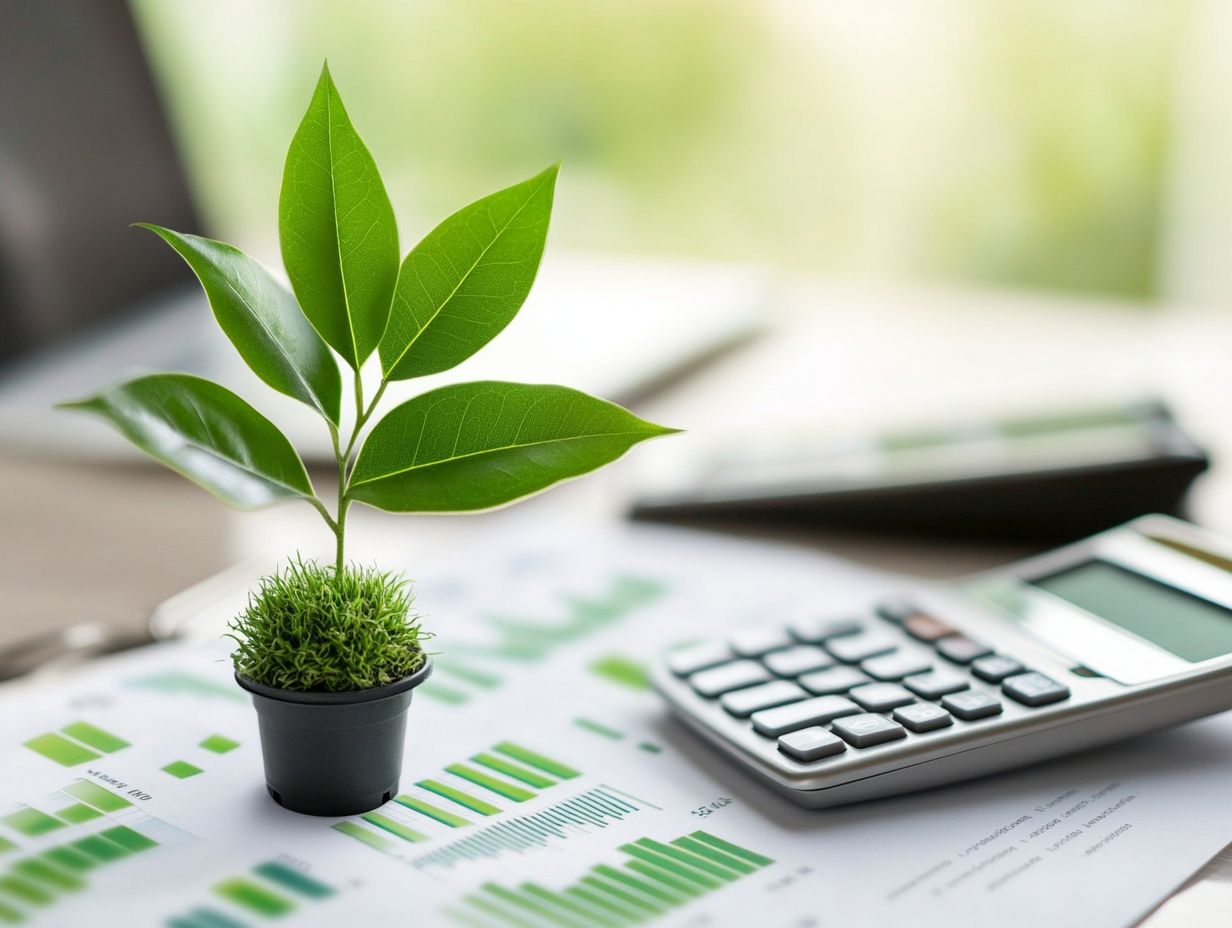
Energy audits provide valuable insights into energy usage, helping individuals and organizations make informed decisions that benefit both their budget and the environment. Regular energy audits lead to significant cost savings and reduced environmental impact, making them crucial for achieving sustainability goals. They play a key role in identifying areas for improvement and offering actionable steps to enhance energy efficiency and minimize waste.
The Importance of Energy Audits
Energy audits are essential for boosting energy efficiency and management practices across various sectors, especially in businesses where energy consumption significantly impacts operational costs and environmental sustainability.
By carefully looking at how you use energy, you can uncover savings opportunities that reduce your carbon footprint and support sustainable development efforts to cut greenhouse gas emissions.
An energy audit acts as a strategic roadmap for developing comprehensive energy management strategies that align with regulations and your environmental goals.
Understanding Energy Usage and Efficiency
Understanding energy usage and efficiency is important whether you are part of a business or government entity striving to optimize energy systems and minimize consumption.
By analyzing energy consumption data, you can discover performance gaps that might otherwise go unnoticed. This analysis is a crucial step in identifying where you can effectively implement energy-saving measures, leading to significant cost reductions and environmental benefits.
Establishing energy benchmarks allows you to measure your performance against industry standards, creating a clear pathway for improvement.
By adopting energy-efficient technologies, you enhance performance and foster sustainable practices, ensuring long-term viability in a competitive environment.
Taking action now can lead to better energy choices that save money and help the planet!
Unlock the Benefits of Energy Audits Today!
Conducting an energy audit offers a wealth of benefits that extend beyond just cost savings.
It significantly enhances your corporate social responsibility while promoting a positive environmental impact.
Cost Savings and Environmental Impact
The savings from energy audits can offset the initial investment required to implement energy-saving measures, all while reducing the environmental impact of your energy use.
During energy audits, you often find inefficiencies in heating and cooling systems, leading to annual savings that can reach thousands of dollars. This newfound financial flexibility enables you to invest in renewable energy solutions, such as solar panels or wind energy installations.
By embracing these sustainable technologies, you lessen your dependency on fossil fuels and significantly reduce your carbon footprint. Ultimately, the upfront cost of energy audits pays off in lower utility bills and cultivates a culture of sustainability that aligns your economic goals with environmental responsibility.
Start your energy audit today and take a step towards a sustainable future!
Types of Energy Audits
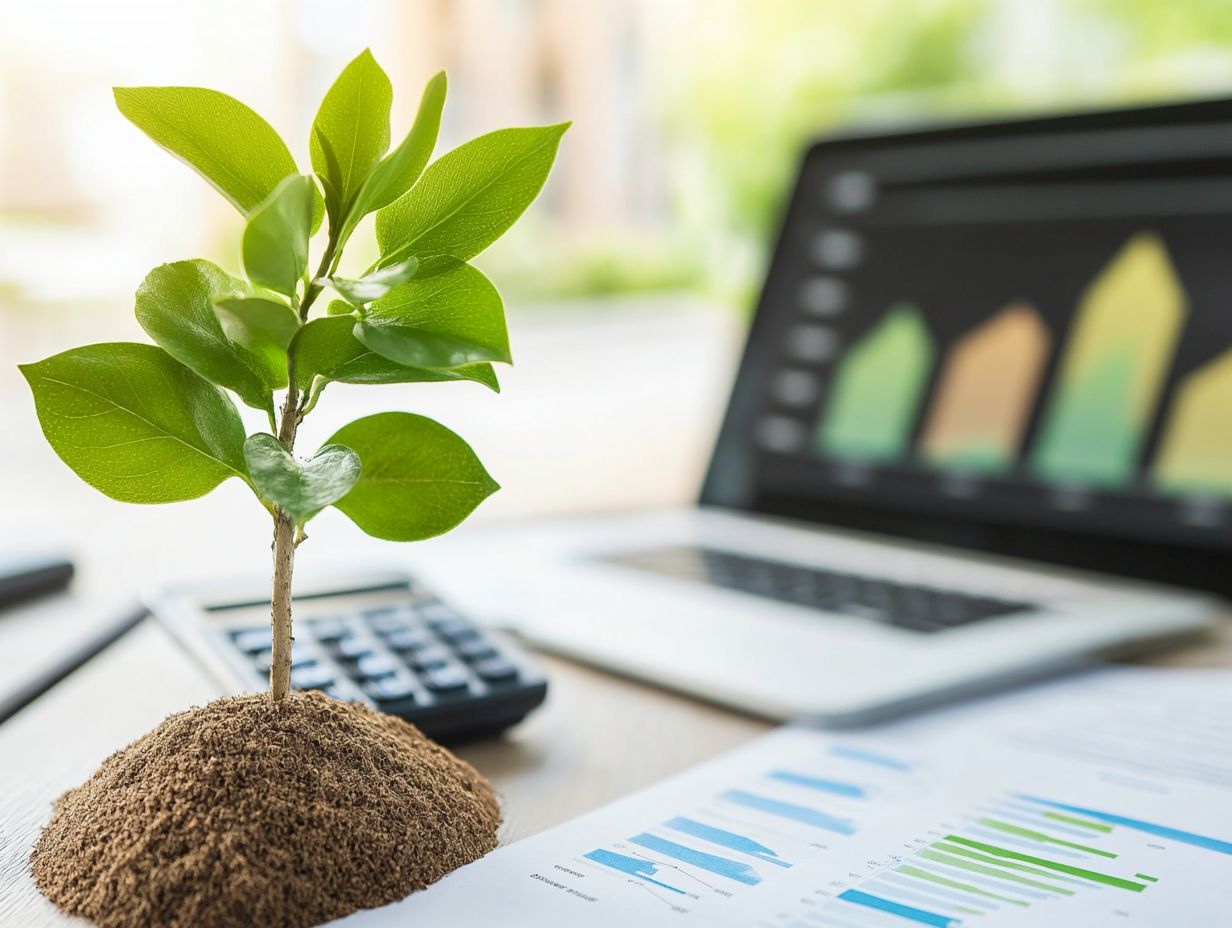
You ll encounter various types of energy audits, such as walk-through audits, detailed audits that help you understand the best investments for energy savings, and investment-grade audits.
Each type plays a unique role in assessing and optimizing energy systems, catering to different needs and objectives in your pursuit of efficiency.
Overview of Different Audit Methods
Different audit methods present a spectrum of approaches for evaluating energy usage, ranging from basic assessments to in-depth analyses that harness energy consumption data to enhance energy systems.
The integration of smart devices has become increasingly vital in gathering real-time data. This technology offers a more precise understanding of energy usage patterns.
Artificial intelligence plays a key role in analyzing this data, allowing organizations to pinpoint inefficiencies and recommend tailored solutions.
By leveraging advanced technologies, your organization can uncover insights that lead to significant cost savings and ensure compliance with regulatory standards.
These innovative approaches to energy audits equip you to make informed decisions, ultimately contributing to a more sustainable energy future.
The Role of Energy Audits in Sustainability
Energy audits are your secret weapon for sustainability! They pinpoint energy-saving opportunities that align seamlessly with eco-friendly practices.
Energy audits pave the way for a smooth transition toward renewable energy resources, ensuring that your efforts contribute meaningfully to a greener future.
How Audits Support Sustainable Practices
Energy audits play a pivotal role in advancing sustainable practices by offering actionable insights that enable your organization to optimize energy management and enhance energy efficiency.
For example, a prominent university recently conducted an energy audit and uncovered significant inefficiencies within its heating and cooling systems.
By following recommendations like upgrading to energy-efficient HVAC units and improving insulation the institution cut down on energy consumption and made strides toward renewable energy sources like solar power, resulting in impressive cost savings.
Consider a manufacturing facility that embraced energy monitoring systems after its audit, leading to enhanced operational practices. These instances highlight that energy audits are not just a formality; they are a critical step on the path to sustainability, driving substantial changes benefiting both the environment and your bottom line.
Implementing Energy Efficiency Measures
Implementing energy efficiency measures is essential for organizations aiming to optimize energy management practices, enhance energy infrastructure, and ensure compliance with regulatory standards.
Steps to Improve Energy Efficiency
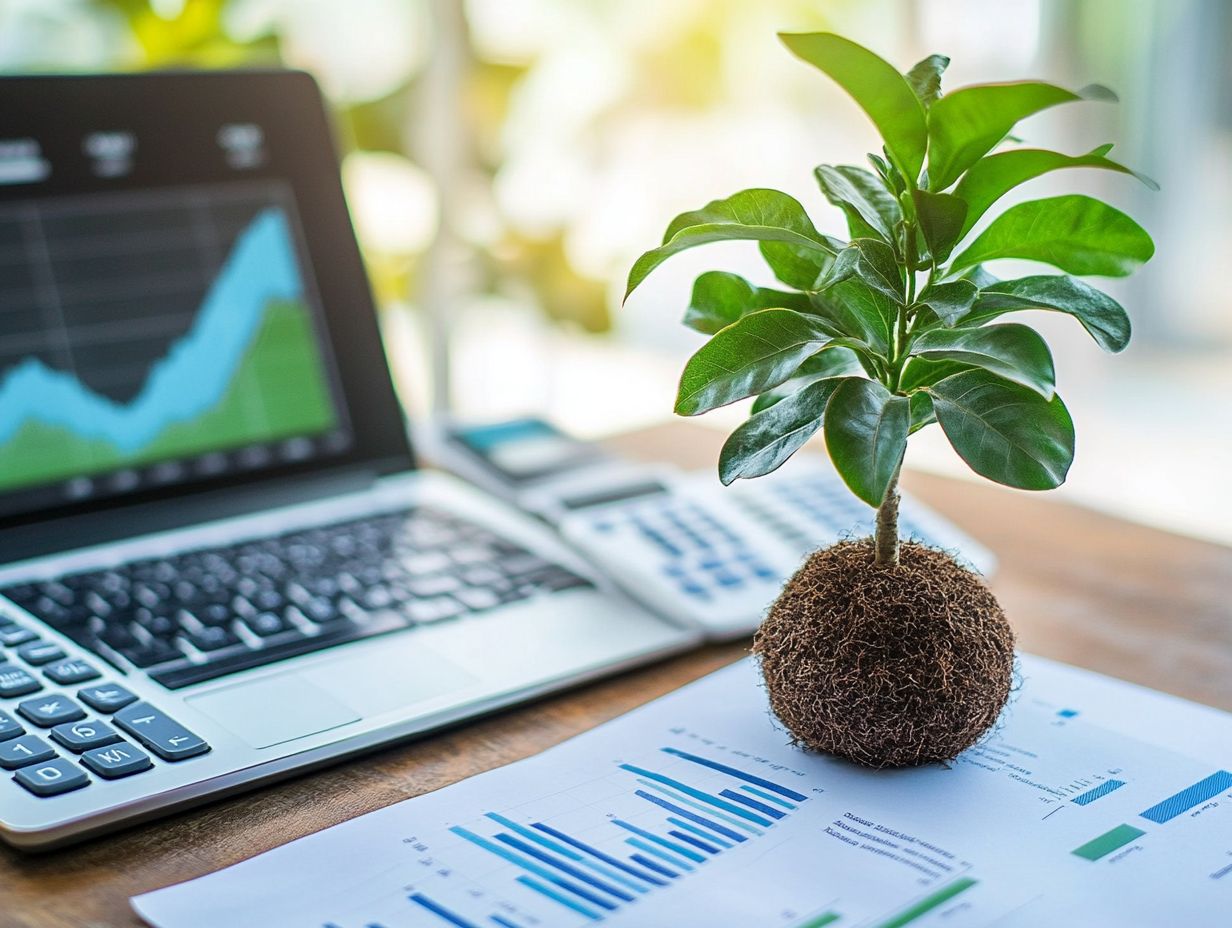
To elevate your energy efficiency, adopt a systematic approach that encompasses financial analysis and energy usage assessments.
This thorough evaluation allows you to establish clear benchmarks and targets tailored to your operational needs.
Start by gathering data on your current energy consumption patterns; this will serve as a baseline for future enhancements.
Once you’ve identified inefficiencies, implement a diverse array of energy-saving measures everything from upgrading equipment to improving insulation and fostering energy conservation practices among your team.
After these strategies are in motion, continually monitor their effectiveness and assess results against the benchmarks you’ve set. By adapting your approach based on performance, you ensure ongoing improvements in energy efficiency, ultimately leading to reduced costs and a smaller environmental footprint.
Future of Energy Audits and Sustainability
The future of energy audits is deeply intertwined with sustainability. Advancements in technology and energy storage solutions are setting the stage for more efficient energy systems and facilitating a seamless energy transition.
Start your energy audit today to make a real difference!
Potential for Further Advancements
There s immense potential for further advancements in energy audits, especially in how you can adapt them to incorporate renewable energy sources and bolster your environmental sustainability efforts.
By harnessing new technologies like artificial intelligence and machine learning, energy audits can transform into more precise and predictive tools. These advancements enable you to pinpoint inefficiencies with an accuracy that was once unimaginable.
Additionally, these methodologies can incorporate real-time data analysis. This allows for dynamic assessments that evolve alongside your energy usage patterns. These innovations streamline the auditing process and strengthen your sustainability efforts.
Don t wait! Embrace innovation in auditing practices now to lead the way in sustainability. As the world transitions toward a more sustainable energy future, it s essential to effectively track progress and meet your evolving energy transition goals.
Frequently Asked Questions
What is the connection between energy audits and sustainability?
The link between energy audits and sustainability is clear. Energy audits help identify energy efficiency opportunities, which can lead to reduced energy consumption and contribute to sustainable practices, especially in achieving LEED certification.
How does conducting an energy audit promote sustainability?
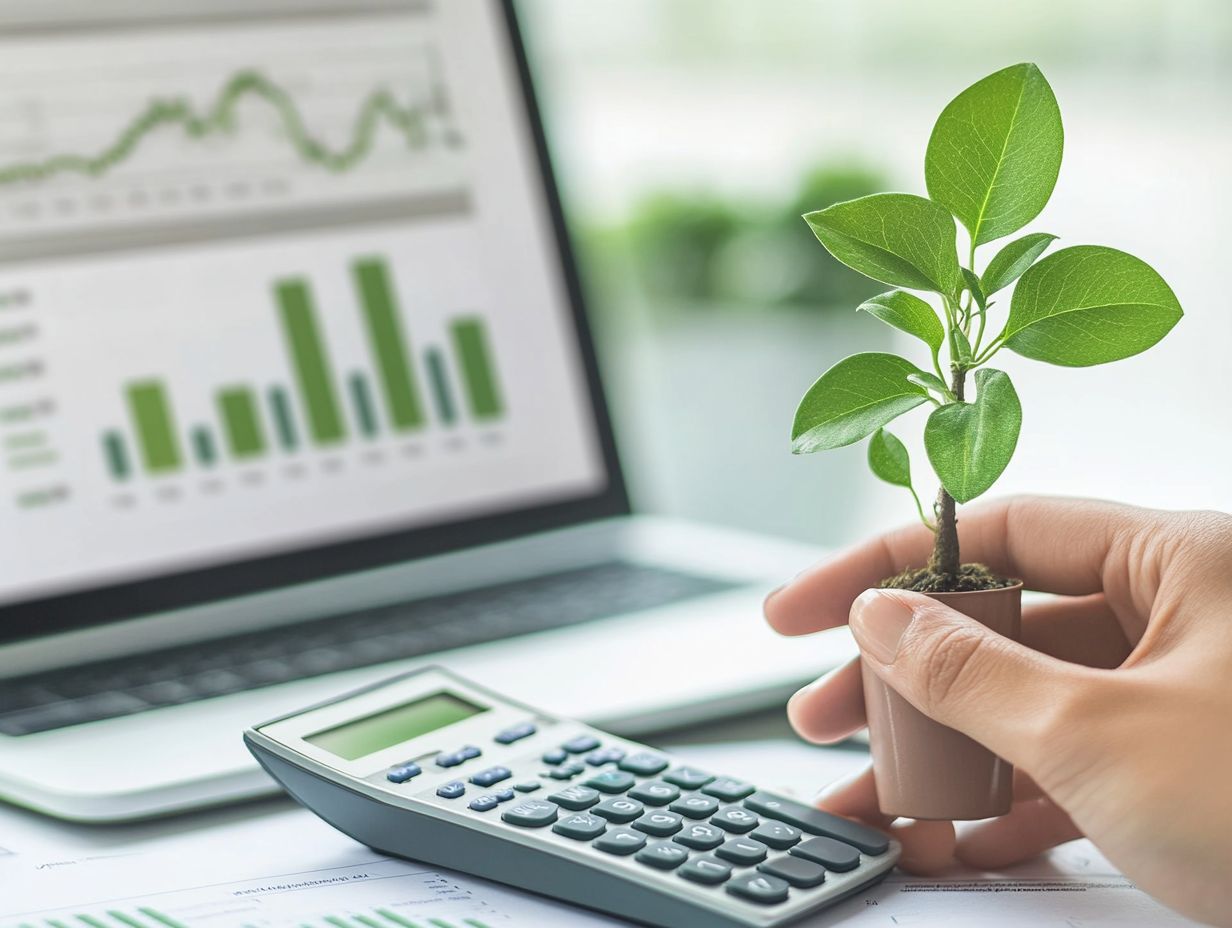
An energy audit identifies areas where energy can be conserved and waste reduced. By implementing the recommendations from an energy audit, companies and individuals can reduce their carbon footprint and contribute to a healthier environment.
Can energy audits benefit both businesses and individuals in terms of sustainability?
Yes, energy audits benefit both businesses and individuals. By identifying areas for energy savings, businesses can reduce operational costs and contribute to a more sustainable economy. Individuals also reduce their energy consumption and costs while helping create a healthier environment.
What are some common outcomes of energy audits that promote sustainability?
Common outcomes of energy audits include recommendations for energy-efficient lighting, HVAC upgrades, insulation improvements, and the use of renewable energy sources. These measures help reduce energy consumption and promote sustainable practices.
Are there any financial benefits for companies that conduct energy audits to promote sustainability?
Yes, there are financial benefits for companies that conduct energy audits. By implementing energy efficiency measures, businesses can lower energy costs and improve their bottom line. Many governments also offer incentives and rebates for companies adopting sustainable practices, making it a financially beneficial decision.
How often should energy audits be conducted to maintain sustainability?
Conduct energy audits every 3-5 years to stay sustainable. This timeframe accounts for changes in energy usage and technology, allowing for new energy-saving opportunities to be identified. However, businesses and individuals may choose to conduct audits more frequently for maximum efficiency and sustainability benefits.

